Released: 12th June 2000
Writers: Max Martin / Brian T. Littrell
Peak position: #8
Chart run: 8-15-28-42-45-54-68-X-X-X-X-75
Billboard Hot 100 chart run: 58-50-43-37-31-30-39-47-55-61-76-90-93-93-100
Just as the Backstreet Boys were gearing up to bring their record-breaking Millennium album to a close by releasing Don’t Want You Back as the fourth single, Nick Carter made a call that changed their destiny.
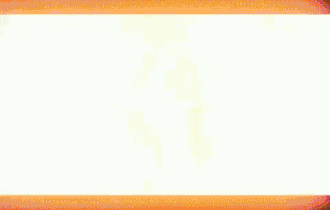
By the end of 1999, the Backstreet Boys had sold just under 9.5 million copies of Millennium in America alone. Thus, while a fourth single was entirely welcome, it wasn’t awfully necessary and was going to be fighting the law of diminishing returns considering most fans already owned (at least one copy of) the album. To get around this, Jive Records came up with a plan: let the fans pick which song would be released, that way at least guaranteeing they would be behind it, if nothing else. The contest was run via MTV’s TRL, and it was initially looking like Don’t Want You Back would win…that is, until Nick Carter called in and was asked which song he would pick. After citing The One as his preferred choice, the track picked up many votes, and before long, an outright winner was declared.

As it happens, this wasn’t a bad result (although the rest of the group might have disagreed) because the Backstreet Boys did Don’t Want You Back much better on their next album with The Call, which very much sounds like a bigger, bolder sequel. Furthermore, although The One is – in many respects – classic Cheiron, it’s not necessarily the type of track from them that was typically picked as a single. So, the timing was perfect in hindsight.
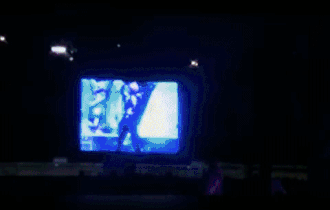
It’s entirely unsurprising that the studio gained a reputation for their pounding, synth-laden uptempos because, when we weren’t being swept off our feet with gorgeously gloopy ballads, that was the impression broadly presented from the singles that the Backstreet Boys and their label-mates released. The One doesn’t fit that mould, though, and is instead reasonably characteristic of the songs you could expect to find sitting on the albums of the time propping up the big hits. Opening with a jangly acoustic guitar strum, many of the identifiable Cheiron trademarks are present as the track pauses for a few profoundly ominous seconds before crashing into life with a shuffle beat. However, none of the additional elements – the thumping synths or squelchy bassline – ever arrive. The One doesn’t sound under-produced by any means, but it’s a much lighter composition that evokes the same halcyon twinkle more commonly associated with Cheiron’s ballads.
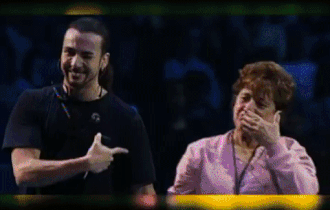
What truly shines through this track is the sheer quality of the songwriting that lay underneath so many of those monster hits of the time. This wasn’t necessarily a revelation, but it feels entirely deserving to push it to the fore. Between them, Max Martin and Brian Littrell craft a song that relies almost solely on its hooks to get by; and they don’t miss a single beat. The pre-chorus: “There you are, wild and free, reaching out like you needed me, a helping hand to make it right, I am holding you all through the night” essentially manages to capture an entire era of pop music within 15 seconds; it’s utterly, triumphantly perfect. Similarly, The One’s mid-section is among Cheiron’s finest; the music fades out, and a stirring melody plays in the background before the instrumental sweeps back in: “You need me like I need you, we can share our dreams coming true; I can show you what true love means, just take my hand, baby please”. It’s as if Brian is performing directly to the listener; such is the vulnerability and sincerity in his voice. Moments like this are so effective because they make the song mean something, and that’s why Cheiron’s brand left such an impression on the audience. Somehow, despite the number of tracks released in a short space of time, the end product always sounded like it mattered to those creating and performing it. Thus, it mattered to us as well.
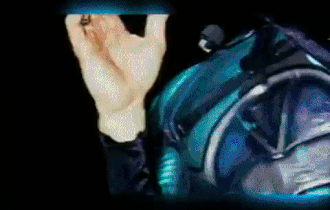
The One pulls a final trick out of the bag when the middle-eight: “I’ll be the one, I’ll be the light, where you can run to make it alright, I’ll be the one, I’ll be the light, where you can run…” is reprised and partly overlapped with the chorus: “I’ll be the one (I’ll be the one), who will make all your sorrows undone, I’ll be the light (I’ll be the light), when you feel like there’s nowhere to run, I’ll be the one” at the culmination of the song. Complete with the subtle filtered synths shimmering in the background, The One is an utterly perfect summation of Cheiron at the turn of the century. The studio would shortly close its doors, and though many of the team continued to work with the same acts, their sound became more frantic, more aggressive and more self-aware. Pop music was never quite so joyously wholesome again.
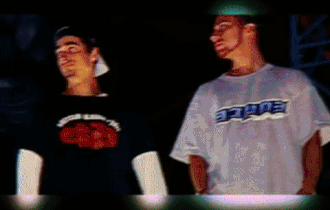
Alas, the music video for The One is that least desirable of concepts: a tour montage (sigh). Now, in fairness, there was a lot of footage to draw on, considering the Backstreet Boys had just completed the 128(!)-date Into The Millennium Tour. But a very similar approach was used for *NSYNC’s I’ll Never Stop – released around a month after The One as the second international single from No Strings Attached – so there is a sense that Jive Records were phoning it in a bit around this time. That, or they didn’t want to give the impression that one act was getting more of a push than the other. Either way, considering the label had the two biggest boybands in the world on their books, both amid their most successful respective album campaigns, it doesn’t seem entirely unreasonable to expect more (maybe Don’t Want You Back would’ve been given the full treatment?). Sure, if you should happen to catch a glimpse of yourself in the video, then it would undoubtedly have been exciting; but for everyone else, it’s like receiving a piece of merchandise from a tour you didn’t attend. A lovely memento, in theory, but one which doesn’t elicit any emotional response.
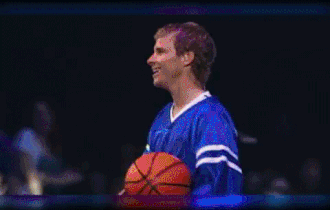
Such was the momentum behind the Backstreet Boys; The One performed incredibly well considering it was both the fourth release from Millennium and accompanied by very little – if any – significant promotion. In the UK, the track peaked at #8, becoming the group’s 11th consecutive top ten single. Indeed, it’s a real testament to the Backstreet Boys’ sustained presence in the upper echelons of the chart that this was their ‘smallest’ hit since I’ll Never Break Your Heart reached the same position way back in 1996. In America, The One peaked at #30 on the Billboard Hot 100; this wasn’t wholly unexpected given the group’s balladry tended to fare better than their uptempos, and Jive Records were probably more concerned with keeping the Millennium album hovering around the top 50 for as long as possible, which is precisely what happened. So, job done.
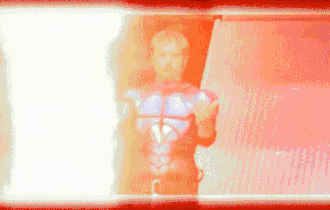
Even though The One almost never happened, the Backstreet Boys have fully embraced it, perhaps because it was picked by the fans (even if they were following Nick Carter’s lead). The song is rarely excluded from their tour setlists, and while it was never part of the plan for Millennium, it fits so perfectly into the timeline for pop music at this time that it’s hard to imagine the Backstreet Boys’ career without it.



